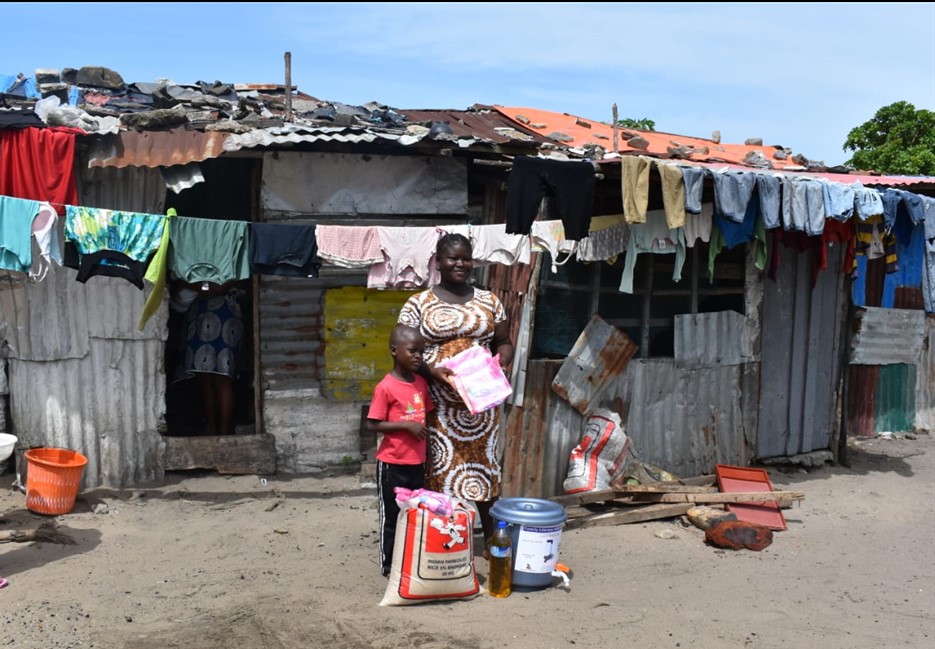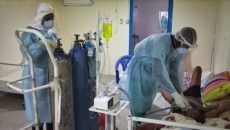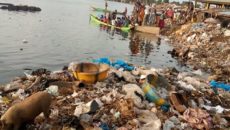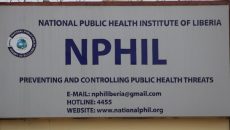This article was sponsored by the We-Care Foundation
MONROVIA, Montserrado – After years of running a Family Literacy Initiative that trained parents to prepare their children for formal schooling, the We-Care Foundation has shifted its activities to ensure that its trainers maintain social distance with beneficiaries while still ensuring that the children continue learning.
Launched in 2015 in partnership with the Friends of Liberia and HIPPY International, the Family Learning Initiative is a 30-week home literacy program that trains parents to provide home education for their young children under the age of five whose parents have not yet enrolled them in school. The program ensures that when the children start school, they are equipped with basic skills.
Home visitors train parents in basic teaching skills, while the parents in turn teach their own children how to read, write, and identify shapes and colors. There are at least 200 families currently enrolled in the program in poor and underprivileged communities in Montserrado and Margibi, including Caldwell, Duazon, Neezoe, and West Point. Home visitors are assigned to visit each of the families to deliver weekly lessons, train the parents, and follow up on their children’s progress.
The curriculum requires that a child in the three-year program would be ready for first grade in regular school at age six to compete with others currently enrolled in pre-primary schools.
But with regular home visits no longer permitted due to social distancing rules put in place because of the Coronavirus pandemic, the We-Care Foundation says it has adjusted to continue observing social distancing rules while keeping children learning.
The organization’s coordinator, Yvonne Capehart Weah, said the modified program consists of activity books covering three weeks of learning activities for each of the families in the program, with simple instructions that enable parents to teach their own children without the home visitors.
“We had the first three-week package,” Weah said. “Home visitors, using all precautions, gave these packages to the parents, and on the phone they called the parents about their child’s progress.”
However, Weah said the phone conversations revealed that many parents did not have food, materials, or the knowledge to protect themselves from being infected by the Coronavirus and keep their families healthy.
“After we got to know their own needs based on the lockdown situation, we communicated to our partner, Friends of Liberia, former Peace Corps volunteers who worked in Liberia,” she said.
She said through the intervention of Friends of Liberia, a member of the group, Sally Humphrey, donated funds that helped purchase food and anti-COVID-19 materials for families in the program.
Each family in the program received a 25kg bag of rice, milk, flour, cornmeal, sugar, vegetable oil, a handwashing bucket, disinfectants, and COVID-19 awareness flyer. Weah said the supply will last each family until June 2020.

A mother and son after receiving their supplies. Photo: We-Care Foundation
Weah believes that with the intervention, families will stay home and healthy while their children are learning during the pandemic.
“Our aim is to keep these children learning to minimize the loss on gains in learning outcomes during this lockdown. We know that the children between ages 3-5, their brains are developing so rapidly. But if they are not engaged with learning materials, they tend to lose out on those gains,” she said.
“The program has paid off because we saw the need that parents are their children’s first teachers, and over the periods, we have been building the skills of the parents to teach their children. Now when all schools are closed, these parents in this program, have the skills that with minimum instruction they are keeping their children home engaged with learning activities.”
This article was sponsored by the We-Care Foundation. Featured photo by We-Care Foundation



